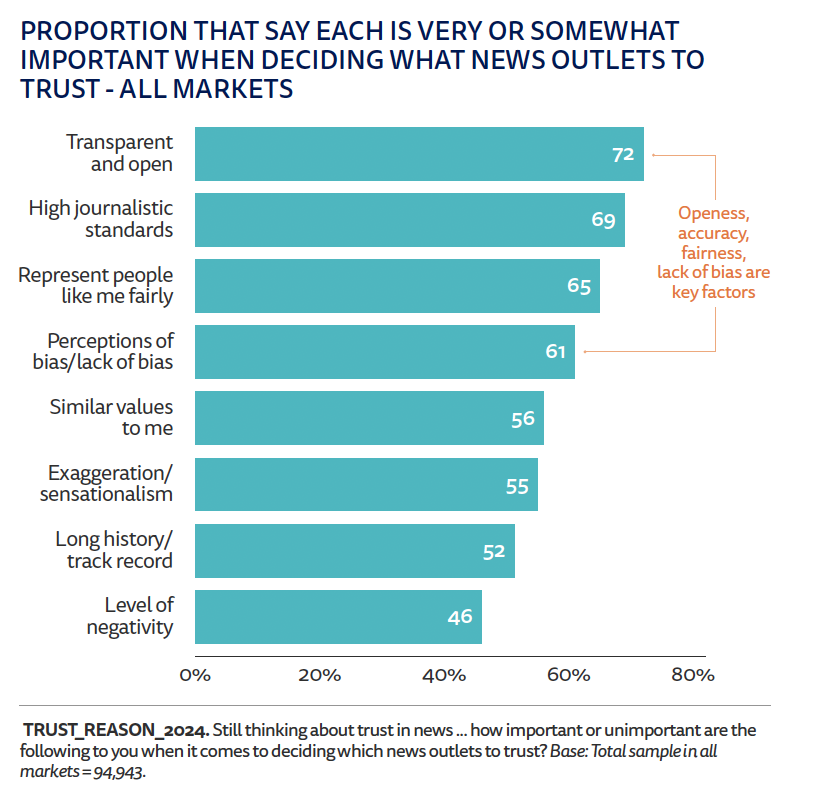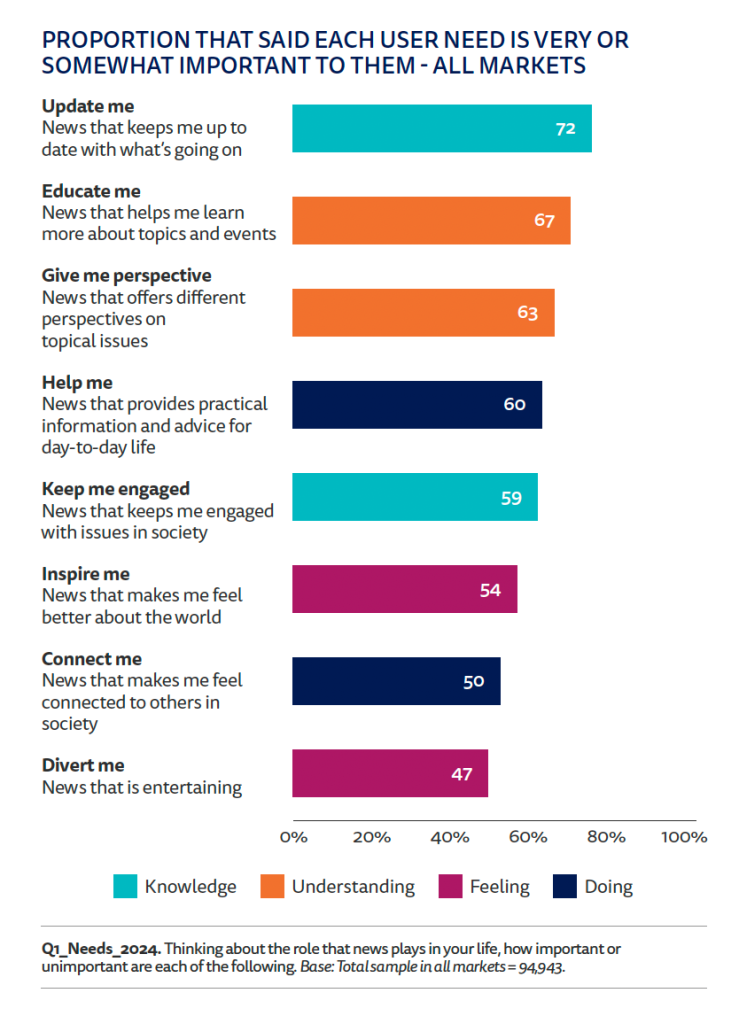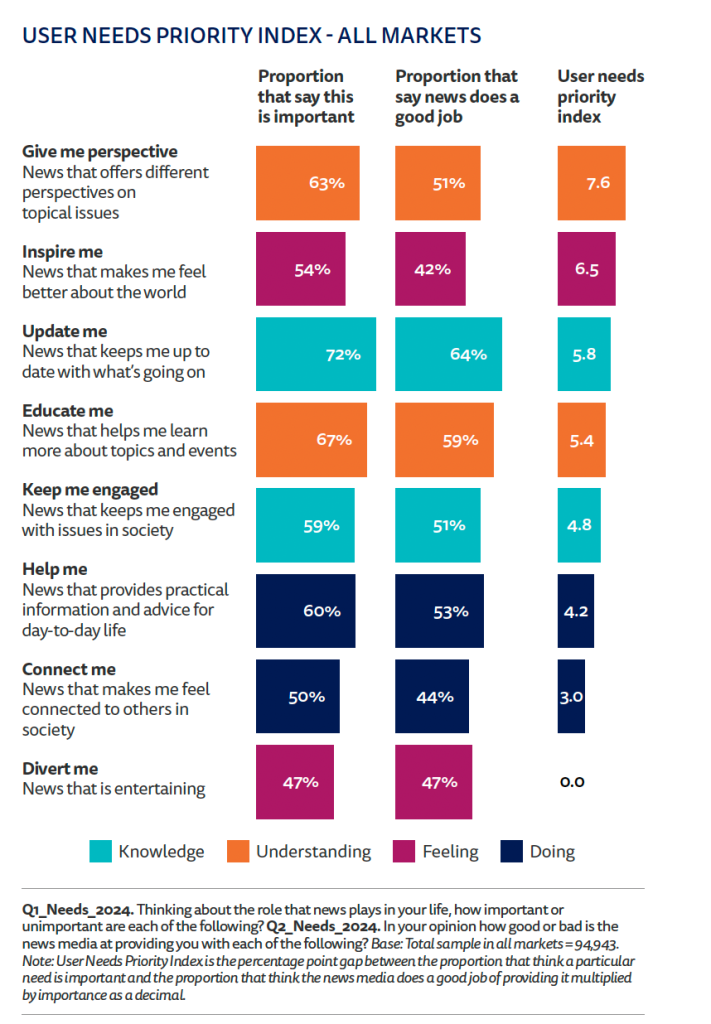
June 17 2024
Every year around this time the folks behind the Reuters Institute Digital News Report publish their report on the state of news journalism in 47 countries around the world and in so doing, remind us of the indispensability of expert observations.
Unfortunately their observations are usually bad news or at least deeply worrisome. This year there are four big ones:
The public’s news exhaustion and avoidance continues to rise.
News consumers increasingly seek out news through digital “gateways,” meaning online platforms that aggregate news links without paying compensation. Meanwhile, news consumers decreasingly seek out news organizations’ websites and apps directly. That’s bad for the financial viability of news publishers and broadcasters.
News providers are increasingly less likely to be journalists or newsrooms. There is a very significant growth of non-professional “influencers,” especially reaching the younger generation.
News subscriptions remain stubbornly low —and appear to be levelling off— at the rate (in Canada) of 15% of the public.
And we haven’t even got to anxiety-inducing AI and its potential impact on reporting facts.
On the other hand, there is some less than awful news. The trust-in-journalism meter may be levelling off (or slowing considerably) after several years of nihilistic vilification of professional journalism.
The Report does a great job analyzing all of these trends: you can access the global report here and the Canadian segment here:
Once you start reading the reports you’ll find a collection of gems.
The global report tracks the wide discrepancies between nations on issues of trust in news organizations, rate of news subscriptions, consumer preference for news websites instead of gateways, and so on. You can only walk away from reading the report acknowledging that the most powerful influences on the financial health of any nation’s news journalism have nothing to do with the quality of journalism.
Like, is the language of news English or not (as US online sources and the freely available BBC News are in English)?
How much news content is available free from public broadcasters?
What is the ingrained political culture as it affects the willingness (or not) of the governments to support media through subsidies or regulation?
How politically polarized (or not) is the population?
On the other hand, some of the Report’s analysis provides some optimism that news organizations can do things right, or better, to shape their own destinies.
For example, the Report polled on public trust in news organizations. The results are intriguing:

Thankfully the public puts a premium on transparency, lack of perceived bias and high journalistic standards. But as you can see, the public also puts a premium on “representing people like me fairly” and having “similar values to me.”
You see the contradiction and the corresponding challenge to journalism.
Nevertheless another of the Report’s measurement of reader satisfaction gives news organizations something they can use:

The Report even identifies the opportunity for improved reader satisfaction, measured by the difference between the importance of the consumer need and performance of the newsroom:

There is no shortage of these insights and perhaps later this week I’ll post about more of them.
***
If you would like regular notifications of future posts from MediaPolicy.ca you can follow this site by signing up under the Follow button in the bottom right corner of the home page;
or e-mail howard.law@bell.net to be added to the weekly update;
or follow @howardalaw on X.
2 thoughts on “Insights from the 2024 Reuters Digital News Report”